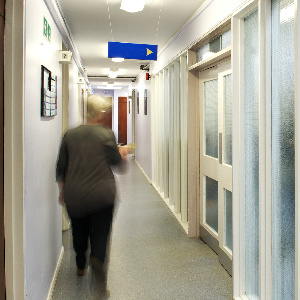Professor Thomas, GPs are a key part of the future NHS

With an increasingly multi-morbid and ageing population, the demand on primary care is ever-increasing and access is often highlighted as a key problem.
Therefore Professor Meirion Thomas’ insinuation in his latest article for the Daily Mail, that a general practitioner’s role is superfluous and undemanding, shows little regard for his colleagues and undermines the public perception of their practice.
He asserts that more money has been poured in general practice is disputed by the fact that between 2008/09 and 2011/12, the total number of consultations in general practice is estimated to have risen from 300.4m to 340m.1
During this time, the proportion of the annual healthcare budget spending on primary care dropped from 10.95% in 2005/06 to 8.5% in 2011/12, despite GPs continuing to deliver over 90% of patient care contact.1,2
Professor Thomas fails to appreciate the GPs’ duty to keep up with developments in medicine, as evaluated through appraisal and revalidation, and demonstrates a serious lack of insight into the complexity of the generalist workload.
He additionally highlights the problems with the workforce and the growing need for change in the service. However, the models proposed by Professor Thomas to counter the growing workforce problem are neither new nor original.
Practices across the country already employ specialist nurses to help deliver care for long-term conditions. The Five Year Forward View highlighted that the salvation of primary care is not going to be delivered by doctors, but through a responsive, integrated service which maximises the skills of our healthcare colleagues, including nursing and allied healthcare professionals. If anything, his rhetoric only challenges academics to describe the workforce of the future, which needs to be fit to deliver sustainable primary care.
Bids for the Prime Minister’s Challenge Fund reveal that GPs, along with their hospital colleagues, are leading the way towards new models of care. For example, general practice is the only sector in healthcare that holds completely electronic patient records, as well as electronic prescribing and referrals.
The drive to reduce variability within practices across the country has been recognised by the Royal College, NHS England and the Care Quality Commission. The aim of the inspections process is not to castigate, but to improve consistency. Primary care is the bedrock for providing the care for long-term conditions, and it is recognised in the Five year Forward View that the improvement of integration of the patient care pathway is required.4
Past form
In a previous article for the Daily Mail, Professor Thomas lamented the presence of women within medicine. And yet the only sustained increase of doctors entering general practice has been female doctors, with 65% of GP trainees being female.3 Primary care or indeed any form of healthcare is not sustainable without these female doctors within the workforce.
Professor Thomas raises some key issues and highlights that changes needs to be made in order to deliver a highly effective system of out of hospital care. Changes are being made both at ground level and policy level to address these issues.
However, by unreasonably criticising his colleagues who provide the majority of care delivery is incendiary and unnecessary.
As a surgeon who works in tertiary care and also in the private sector perhaps Professor Thomas would like to visit a busy GP surgery to understand the increasingly complex nature of a GP’s workload, and the challenges involved in delivering high quality care on an increasingly constrained budget.
Dr Saira Ghafur (@sairaghafur) is a clinical fellow to the national medical director at NHS England and is a respiratory specialist registrar. Dr Roisin Finn (@Roisin_Finn) is a clinical fellow to the national medical director at NHS England and is a neurosurgical specialty registrar. Dr Nikki Kanani (@Nikki_KF) is a GP and CCG vice chair.
References
1 RCGP. 34m patients will fail to get appointment with a GP in 2014. 2014. http://www.pulsetoday.co.uk/your-practice/practice-topics/access/two-week-wait-for-gp-appointments-to-become-the-norm-in-many-practices-within-a-year/20006739.article
2 Health and Social Care Information Centre. Primary Care. 2014. http://www.hscic.gov.uk/primary-care
3 Securing the Future GP Workforce. Health Education England, March 2014.
Pulse October survey
Take our July 2025 survey to potentially win £1.000 worth of tokens











